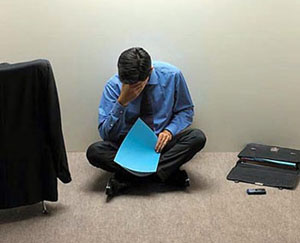 In TCM, depressive syndrome is due to emotional upsets and stagnation of qi, clinically manifested as mental depression, restlessness, feeling of fullness and oppression over the chest, distending pain over the hypochondrium or irritability and susceptibility to cry, or feeling of a foreign body in the throat.
In TCM, depressive syndrome is due to emotional upsets and stagnation of qi, clinically manifested as mental depression, restlessness, feeling of fullness and oppression over the chest, distending pain over the hypochondrium or irritability and susceptibility to cry, or feeling of a foreign body in the throat.
In western medicine, depressive Disorder is a serious psychiatric illness that should not be confused with temporary sadness or "the blues." People use the term "depression" to mean many things, such as the sadness, despondency, and dejection. Major Depressive Disorder, on the other hand, is a clinical syndrome that includes symptoms of depression (as a mood), as well as physical symptoms such as fatigue, a loss of energy, and sleeping difficulties. The opposite of depression is mania, where a person feels euphoric; symptoms of mania include feelings of physical and emotional well being, exaggerated self-esteem, pressured speech, and racing thoughts. People who have alternating bouts of depression and mania have Bipolar Disorder. People with only bouts of depression have Unipolar Depression.
Manic depression
Endogenous depression
Reactive depression
Masked depression
Maternal depression
Postnatal depression